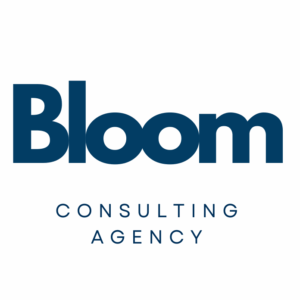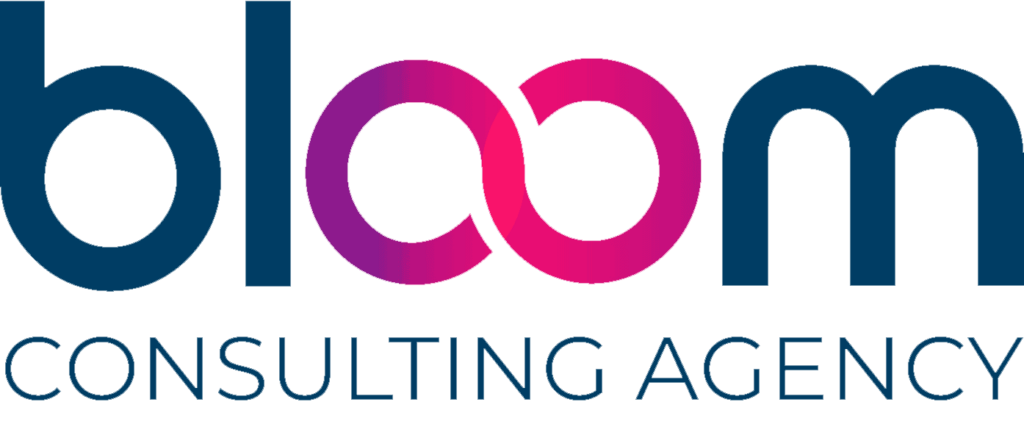Table of Contents
Understanding Modern Artificial Intelligence In Healthcare Applications
Contemporary Artificial Intelligence In Healthcare encompasses sophisticated machine learning algorithms and natural language processing capabilities. These technologies analyze vast healthcare datasets to identify critical patterns and insights. Furthermore, AI systems integrate seamlessly with existing electronic health records and clinical workflows.
Healthcare organizations leverage AI across multiple operational domains simultaneously. Clinical applications include diagnostic imaging analysis, drug discovery acceleration, and personalized treatment protocol development. Additionally, administrative uses encompass revenue cycle optimization, staff scheduling, and regulatory compliance monitoring.
Core AI Technologies Transforming Healthcare Delivery
Machine learning algorithms process patient data to predict health deterioration before symptoms manifest. Deep learning models analyze medical images with accuracy rates exceeding human specialists consistently. Natural language processing converts physician voice notes into structured clinical documentation automatically.
Furthermore, predictive analytics identify patients requiring immediate intervention or specialized care services. Computer vision technology assists surgeons during complex procedures with real-time guidance systems. Robotic process automation handles repetitive administrative tasks throughout healthcare organizations efficiently.
Comprehensive AI Revolution in Healthcare Revenue Cycle Management
Healthcare revenue cycle management faces increasing regulatory complexity and payer requirement changes. Traditional manual processes create significant bottlenecks that delay payment processing substantially.
Artificial Intelligence in healthcare leverages automation to catch mistakes and reduce the time required by staff.
AI automation addresses these operational challenges through sophisticated technological solutions.
Advanced Medical Coding and Clinical Documentation Intelligence
AI-powered medical coding systems analyze clinical documentation in real-time before claim submission. These platforms identify potential coding errors and suggest appropriate corrections automatically. Consequently, healthcare organizations experience dramatically fewer claim denials and accelerated reimbursement timelines.
Modern AI coding assistants stay current with evolving insurance regulations and coding guideline updates. Machine learning models learn from historical coding patterns to improve accuracy continuously. Therefore, even experienced certified coders benefit from AI-enhanced error detection and prevention capabilities.
Artificial Intelligence in healthcare is transforming the way medical professionals manage their workload by automating routine tasks. Additionally, AI documentation platforms reduce physician administrative burden by up to 40% annually, freeing up valuable time. Voice recognition technology, powered by Artificial Intelligence in healthcare, seamlessly converts clinical conversations into structured medical records, improving accuracy and efficiency. As a result, healthcare providers can spend more quality time with patients instead of being bogged down by paperwork, leading to better patient outcomes and satisfaction.
Intelligent Prior Authorization and Claims Processing
Insurance prior authorization requirements traditionally delay patient care delivery by several weeks. Manual authorization processes often result in service denials and significant revenue losses. However, AI authorization systems process requests efficiently using comprehensive medical knowledge databases.
Furthermore, AI platforms analyze authorization approval patterns across different insurance providers systematically. These insights help predict approval likelihood and expedite routine authorization requests automatically. Subsequently, patients receive faster care approval while providers maintain consistent revenue streams.
Artificial Intelligence in healthcare is revolutionizing claims processing by making it smarter and more efficient. Smart claims processing systems verify claim completeness before submission to insurance companies, significantly reducing errors and delays. AI algorithms identify missing information and proactively prompt staff to complete the required fields, ensuring higher accuracy. Moreover, predictive models powered by Artificial Intelligence in healthcare estimate the probability of claim approval and flag potential denial risks, enabling healthcare providers to address issues early and improve revenue cycle management.
Automated Revenue Cycle Workflow Optimization
AI eliminates repetitive administrative tasks throughout the entire revenue cycle management process. Billing staff focus on complex cases requiring human expertise and patient interaction. Additionally, automated systems handle routine patient registration, insurance verification, and payment posting functions.
Healthcare organizations implementing comprehensive AI automation report improved staff satisfaction scores significantly. Revenue cycle departments operate more efficiently with reduced manual intervention requirements. Consequently, healthcare providers achieve faster payment cycles and improved cash flow management consistently.
Transformative AI Applications Across Healthcare Operations
Revolutionary AI-Powered Telehealth and Remote Care
Telehealth adoption exploded during the pandemic and continues expanding rapidly across all demographics. AI enhances virtual consultations through intelligent symptom checkers and diagnostic support tools. Remote monitoring devices paired with AI algorithms detect health deterioration early effectively.
Moreover, AI chatbots provide 24/7 patient support and medical triage services efficiently. These systems guide patients to appropriate care levels while reducing unnecessary emergency visits. Consequently, emergency departments experience reduced overcrowding while improving overall patient satisfaction scores.
Virtual reality combined with AI creates immersive rehabilitation programs for physical therapy patients. Machine learning algorithms adapt exercise programs based on patient progress and capability assessments. Therefore, patients receive personalized rehabilitation plans that optimize recovery outcomes significantly.
Intelligent AI Agents for Healthcare Marketing and Patient Engagement
Healthcare marketing leverages sophisticated AI agents for personalized patient engagement campaign development. These systems analyze patient demographics, health conditions, and communication preferences comprehensively. Subsequently, marketing messages reach targeted patients at optimal engagement times consistently.
AI-driven content creation generates educational materials tailored to specific patient populations automatically. Social media management tools optimize posting schedules and engagement strategies across platforms. Therefore, healthcare organizations build stronger community relationships while maintaining regulatory compliance requirements.
Artificial Intelligence in healthcare is increasingly being applied to enhance patient engagement and marketing efforts. AI marketing platforms track patient journey touchpoints from initial awareness through treatment completion, providing valuable insights into patient behavior. Predictive analytics powered by Artificial Intelligence in healthcare identify patients who are likely to require specific services or preventive care interventions. Consequently, healthcare providers can implement proactive outreach programs that not only improve patient outcomes but also generate sustainable revenue growth by addressing patient needs before they escalate.
Advanced Patient Analytics and Precision Medicine Implementation
Modern AI systems analyze comprehensive patient data to predict health risks before symptoms appear. Machine learning models identify patients likely to develop chronic conditions through pattern recognition. Early intervention programs then prevent costly complications and emergency hospitalizations effectively.
Furthermore, AI optimizes individualized treatment protocols based on patient genetic profiles and medical histories. Precision medicine approaches improve clinical outcomes while reducing unnecessary medical interventions significantly. Population health analytics guide strategic resource allocation and preventive care program development.
Predictive models analyze social determinants of health to identify at-risk patient populations proactively. AI algorithms recommend targeted interventions for addressing healthcare disparities across different communities. Therefore, healthcare organizations improve population health outcomes while reducing overall treatment costs.
Real-World Success Story: Mayo Clinic’s Comprehensive AI Implementation
Mayo Clinic demonstrates exceptional AI implementation across clinical and administrative healthcare operations. Their comprehensive AI strategy focuses on improving patient outcomes while enhancing operational efficiency significantly. This case study illustrates practical AI applications that other healthcare organizations can replicate.
Revolutionary Documentation and Clinical Decision Support Systems
Mayo Clinic successfully implemented generative AI for chart summaries, form completion, and clinical documentation assistance. Their AI systems help clinicians process patient information faster and more accurately. This implementation reduces documentation time by 40% while improving overall care quality metrics.
Additionally, Mayo Clinic’s AI algorithms assist with diagnostic imaging interpretation across multiple specialties. These systems detect subtle abnormalities that human radiologists might overlook during routine screenings. Consequently, patients receive earlier diagnoses and more effective treatment interventions consistently.
Clinical decision support tools analyze patient data to recommend evidence-based treatment protocols automatically. AI systems alert physicians to potential drug interactions and contraindications in real-time. Therefore, medical errors decrease while treatment effectiveness improves across all patient populations.
Operational Excellence Through Strategic AI Implementation
The Mayo Clinic Platform leverages AI for workforce optimization and resource management planning. Their predictive analytics identify staffing needs and patient flow patterns accurately. Furthermore, AI-driven scheduling systems reduce patient wait times and improve satisfaction scores significantly.
Supply chain optimization uses AI to predict equipment needs and medication requirements precisely. Automated inventory management prevents inventory shortages while reducing carrying costs substantially. Additionally, AI algorithms optimize facility utilization and room assignment processes efficiently.
Detailed Case Study Reference: Mayo Clinic’s AI Evolution in Healthcare Implementation
Current AI Healthcare Trends Defining 2025 Success Strategies
Strategic Risk Management and ROI-Focused Implementation
Healthcare organizations demonstrate greater risk tolerance for AI initiatives in 2025 compared to previous years. Leadership teams focus on AI solutions that deliver measurable return on investment through efficiency gains. This strategic shift represents significant maturation in organizational AI adoption approaches.
Moreover, healthcare executives prioritize AI implementations that address specific operational pain points effectively. Pilot programs demonstrate value before scaling to enterprise-wide deployments across multiple departments. Consequently, AI adoption success rates increase while implementation risks decrease substantially.
Growing Hospital AI Integration and Technology Adoption
Healthcare organizations increasingly recognize AI’s transformative potential for improving patient care delivery. Early adopters focus on diagnostic imaging, clinical decision support, and administrative automation priorities. This growing adoption transforms standard care delivery protocols across the entire industry.
Furthermore, healthcare technology budgets allocated to AI solutions increased by 35% in 2025. Organizations invest in comprehensive AI platforms rather than point solutions for individual departments. Therefore, integrated AI ecosystems provide greater value than isolated technology implementations.
Focus on Administrative Efficiency and Cost Reduction
Early AI implementations prioritize administrative efficiency improvements and IT infrastructure enhancement projects. These foundational improvements create platforms for advanced clinical AI application development. Subsequently, organizations achieve quick wins while building capabilities for complex implementations.
Clinical productivity increases represent primary success metrics for healthcare AI implementations currently. Staff satisfaction improvements and patient outcome enhancements follow administrative efficiency gains consistently. Moreover, successful AI projects demonstrate clear business value that justifies continued technology investments.
Comprehensive Benefits of Artificial Intelligence In Healthcare Implementation
Enhanced Diagnostic Accuracy and Clinical Decision Making
AI diagnostic systems achieve remarkable accuracy rates across multiple medical specialties consistently. Machine learning algorithms analyze medical images faster than human specialists while maintaining precision. Additionally, AI reduces diagnostic errors that traditionally lead to patient safety incidents.
Computer-aided diagnosis tools assist physicians in identifying rare conditions and complex cases. Pattern recognition algorithms detect subtle disease indicators that human observation might miss. Therefore, patients receive more accurate diagnoses and appropriate treatment recommendations consistently.
Furthermore, AI clinical decision support systems provide evidence-based treatment recommendations in real-time. These tools consider patient-specific factors, current medications, and treatment history comprehensively. Consequently, treatment effectiveness improves while adverse events decrease across patient populations.
Streamlined Clinical Workflows and Operational Efficiency
Intelligent automation eliminates repetitive administrative tasks throughout healthcare organizations systematically. Staff members focus on direct patient care activities instead of data entry responsibilities. Consequently, job satisfaction improves while overall productivity increases substantially across departments.
Workflow optimization identifies bottlenecks and inefficiencies in clinical processes automatically. AI algorithms recommend process improvements that reduce wait times and enhance patient experiences. Moreover, predictive scheduling optimizes staff allocation and resource utilization effectively.
Electronic health record integration streamlines information access and documentation processes significantly. AI assistants help clinicians navigate complex medical records and extract relevant information quickly. Therefore, physician efficiency increases while documentation accuracy improves consistently.
Improved Patient Engagement and Satisfaction Outcomes
AI-powered patient portals provide personalized health recommendations and medication reminder services. Predictive analytics identify patients requiring additional support or intervention services proactively. Therefore, patient outcomes improve through proactive care management and engagement strategies.
Chatbot technology handles routine patient inquiries and appointment scheduling requests efficiently. Natural language processing enables conversational interfaces that patients find intuitive and helpful. Subsequently, patient satisfaction scores increase while administrative staff workload decreases substantially.
Furthermore, AI-driven care coordination ensures seamless transitions between different healthcare providers and specialties. Automated referral systems track patient progress and follow-up requirements systematically. Consequently, care continuity improves while communication gaps decrease significantly.
Substantial Cost Reduction and Revenue Optimization
Healthcare AI implementations typically achieve 20-30% cost reductions in administrative process management. Faster claim processing and reduced denial rates improve cash flow significantly. Moreover, early intervention programs prevent expensive emergency room visits and hospitalizations.
Predictive analytics identify high-risk patients who benefit from preventive care interventions most effectively. Targeted programs reduce costly complications while improving patient health outcomes consistently. Therefore, healthcare organizations achieve better financial performance while enhancing care quality.
Supply chain optimization reduces inventory costs while ensuring adequate stock levels for patient care. AI algorithms predict demand patterns and optimize procurement processes automatically. Additionally, energy management systems reduce facility operating costs through intelligent automation.
Strategic AI Implementation Guide for Healthcare Organizations
Phase 1: Infrastructure Assessment and Technology Readiness
Healthcare organizations must evaluate existing IT infrastructure capabilities before implementing AI solutions. Data quality assessments ensure information systems can support machine learning algorithm requirements effectively. Furthermore, network capacity and security protocols require upgrades to handle AI workloads.
Staff readiness surveys identify training needs and change management requirements for successful adoption. Leadership alignment ensures adequate resources and support for AI implementation projects. Moreover, vendor selection processes evaluate AI platform capabilities against organizational needs systematically.
Phase 2: Pilot Program Development and Testing
Strategic pilot programs demonstrate AI value in controlled environments before enterprise-wide deployment. Success metrics definition ensures measurable outcomes that justify continued investment decisions. Additionally, pilot programs identify implementation challenges and solution refinements needed.
Cross-functional teams include clinical staff, IT professionals, and administrative personnel in implementation planning. Change management strategies address staff concerns about AI technology and job displacement fears. Furthermore, training programs prepare users for new AI-enhanced workflows and processes.
Phase 3: Scaling and Enterprise Integration
Successful pilot programs expand to additional departments and use cases systematically. Integration planning ensures AI systems work effectively with existing healthcare technology platforms. Moreover, data governance policies protect patient privacy while enabling AI analytics capabilities.
Performance monitoring tracks AI system effectiveness and identifies optimization opportunities continuously. User feedback collection guides system improvements and feature enhancements over time. Therefore, AI implementations deliver sustained value while adapting to organizational needs.
Overcoming Common AI Implementation Challenges in Healthcare
Technology Investment and Financial ROI Considerations
Healthcare AI requires substantial upfront investments in technology platforms and staff training programs. However, organizations typically achieve positive return on investment within 18-24 months consistently. Strategic phased implementations minimize financial risks while demonstrating measurable value quickly.
Budget planning includes ongoing maintenance costs and system upgrade requirements for long-term success. Financing options help organizations spread implementation costs over multiple years effectively. Moreover, shared savings programs align vendor incentives with organizational success metrics.
Staff Training and Organizational Change Management
Successful AI adoption requires comprehensive staff education programs and ongoing support systems. Change management strategies address concerns about job displacement and technology complexity issues. Furthermore, training programs help staff leverage AI tools effectively while maintaining clinical expertise.
Leadership communication emphasizes AI’s role in enhancing human capabilities rather than replacing healthcare professionals. Success stories and case studies demonstrate positive outcomes from AI implementation projects. Additionally, feedback mechanisms ensure staff concerns receive appropriate attention and resolution.
Data Privacy and Regulatory Compliance Requirements
Healthcare AI systems must comply with HIPAA regulations and other privacy protection requirements strictly. Robust cybersecurity measures protect patient information from data breaches and unauthorized access attempts. Additionally, transparent AI algorithms maintain trust between patients and healthcare providers consistently.
Audit trails document AI decision-making processes for regulatory compliance and quality assurance purposes. Data governance policies establish clear guidelines for AI system access and usage parameters. Moreover, regular security assessments identify vulnerabilities and implement protective measures proactively.
Frequently Asked Questions About Healthcare AI Implementation
How long does healthcare AI implementation typically take?
Healthcare AI implementation timelines vary based on organizational size and complexity requirements. Simple applications like chatbots deploy within 3-6 months typically. However, comprehensive AI platforms require 12-24 months for full implementation across healthcare organizations.
Furthermore, pilot programs demonstrate initial value within 90 days of deployment usually. Scaling successful pilots to enterprise-wide implementations adds 6-12 months to project timelines. Moreover, staff training and change management processes continue throughout implementation phases.
What AI applications provide the fastest return on investment?
Administrative automation applications typically deliver fastest ROI through immediate efficiency gains and cost reductions. Revenue cycle management AI shows positive returns within 6-12 months consistently. Additionally, patient scheduling and registration automation provides quick wins for healthcare organizations.
Clinical documentation AI reduces physician administrative burden while improving billing accuracy significantly. Prior authorization automation accelerates payment processing and reduces denial rates effectively. Therefore, organizations prioritize these applications for initial AI implementation projects.
How do healthcare organizations measure AI implementation success?
Success metrics include cost reduction percentages, efficiency improvement measurements, and patient satisfaction score increases. Revenue cycle improvements track claim processing times and denial rate reductions quantitatively. Additionally, clinical outcomes measure diagnostic accuracy improvements and treatment effectiveness enhancements.
Staff satisfaction surveys evaluate technology acceptance and workflow improvement perceptions regularly. Patient feedback assesses experience improvements and service delivery enhancements consistently. Moreover, financial performance indicators demonstrate overall AI implementation value and return on investment.
What staff training is required for healthcare AI adoption?
Comprehensive training programs include AI technology fundamentals and specific application usage instructions. Clinical staff learn AI-assisted diagnosis tools and decision support system operations. Additionally, administrative personnel master AI-powered revenue cycle and patient management platforms.
Ongoing education ensures staff stay current with AI system updates and new feature releases. Change management training addresses concerns about technology adoption and workflow modifications. Furthermore, super-user programs create internal experts who support colleagues during AI implementation.
Partner with Bloom Consulting for Strategic AI Healthcare Implementation
Florida healthcare organizations seeking AI implementation success need experienced guidance and proven expertise. Bloom Consulting specializes in healthcare technology integration and revenue cycle optimization services. Our team understands AI adoption complexities in healthcare environments while delivering measurable results.
Comprehensive AI Healthcare Services Portfolio
AI Readiness Assessment Services: Comprehensive evaluations of organizational technology infrastructure and staff preparedness for AI adoption. Our assessments identify implementation priorities and resource requirements for successful project outcomes.
Revenue Cycle Management Optimization: Intelligent automation implementation for coding accuracy, prior authorization processing, and claims management efficiency. These services deliver immediate ROI through reduced denials and faster payment processing.
Staff Training and Change Management Programs: Customized education programs that prepare healthcare teams for AI-enhanced workflows and processes. Our training reduces technology adoption resistance while maximizing system utilization rates.
Compliance and Security Guidance: Expert consultation on healthcare AI regulatory requirements and patient data protection protocols. We ensure implementations meet HIPAA standards while maintaining operational efficiency.
Strategic AI Planning and Implementation: Phased approach methodologies that minimize risks while accelerating benefits realization timelines. Our proven processes ensure successful long-term AI adoption across healthcare organizations.
Why Choose Bloom Consulting for Healthcare AI Implementation
Our healthcare consultants combine deep industry knowledge with cutting-edge AI technology expertise effectively. We help organizations navigate implementation challenges while maximizing return on investment consistently. Additionally, our ongoing support ensures successful long-term AI adoption and optimization.
Healthcare providers partnering with Bloom Consulting achieve faster AI implementation timelines and superior outcomes. Our proven methodologies reduce project risks while accelerating benefits realization significantly. Contact our expert team today to begin your comprehensive AI transformation journey.
Proven Track Record of Healthcare AI Success
Bloom Consulting has successfully guided numerous Florida healthcare organizations through AI implementation projects. Our clients report average efficiency improvements of 35% and cost reductions of 25% annually. Moreover, patient satisfaction scores increase by an average of 20% following AI deployment.
Case studies demonstrate our expertise across different healthcare settings including hospitals, clinics, and specialty practices. We customize AI solutions to match organizational needs and budgetary constraints effectively. Therefore, every client receives personalized service that delivers measurable results consistently.
Transform Your Healthcare Organization with Strategic AI Implementation
Artificial Intelligence In Healthcare represents the future of medical practice and administrative operations. Organizations embracing AI now gain significant competitive advantages through improved efficiency and enhanced patient outcomes. The question isn’t whether to adopt AI technology, but how quickly you can implement it effectively.
Bloom Consulting guides Florida healthcare organizations through every step of strategic AI adoption successfully. Our expertise ensures implementations deliver measurable results while minimizing risks and maximizing value. Schedule your comprehensive consultation today to discover how AI can transform your healthcare organization.
The healthcare industry continues evolving rapidly with AI technology leading transformational changes. Organizations that delay AI adoption risk falling behind competitors who embrace these powerful capabilities. Therefore, immediate action ensures your healthcare organization remains competitive while delivering exceptional patient care.
Contact Bloom Consulting today to start your AI healthcare transformation journey. Together, we’ll build the future of healthcare delivery in Florida and beyond through strategic AI implementation.









